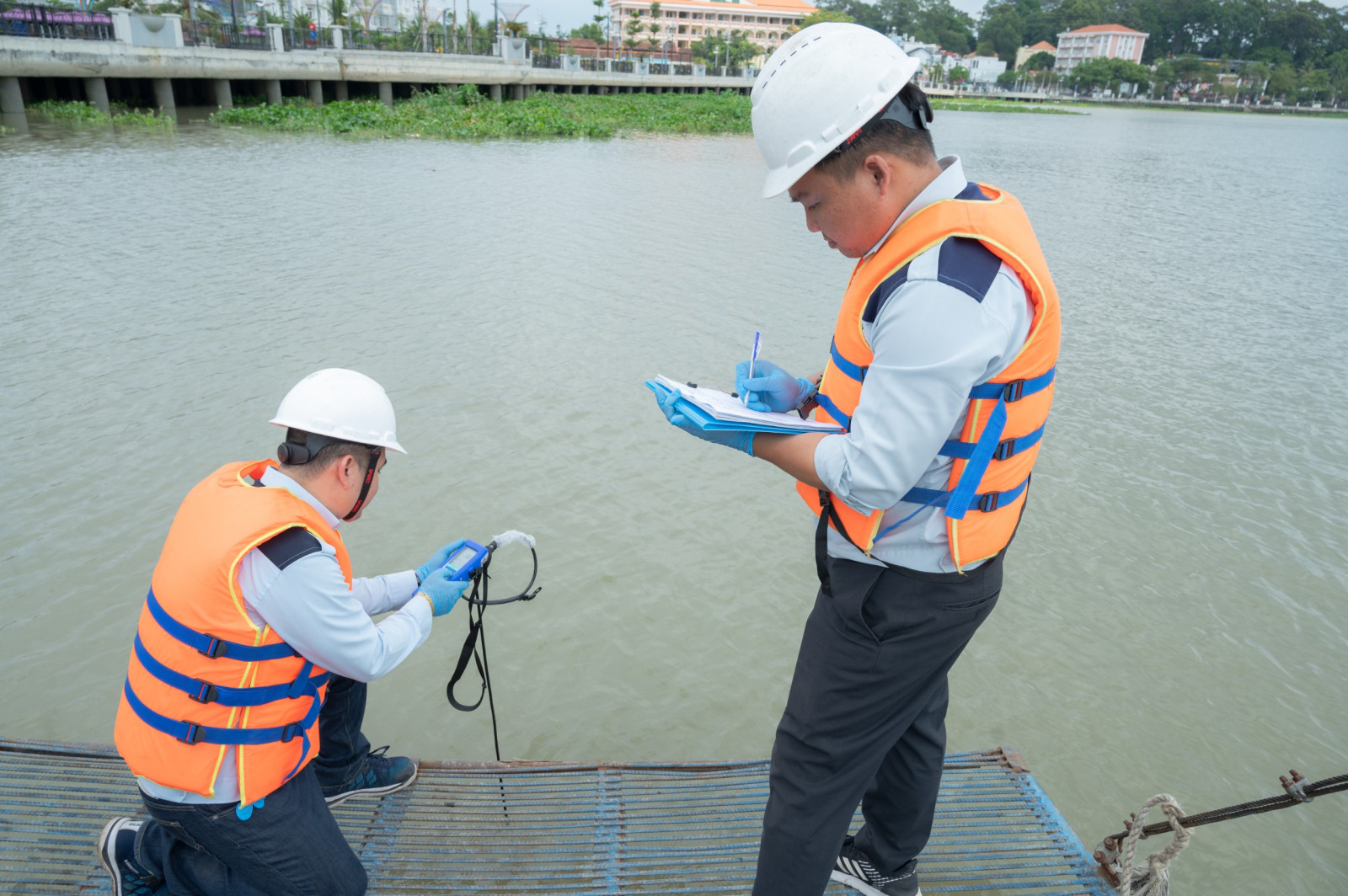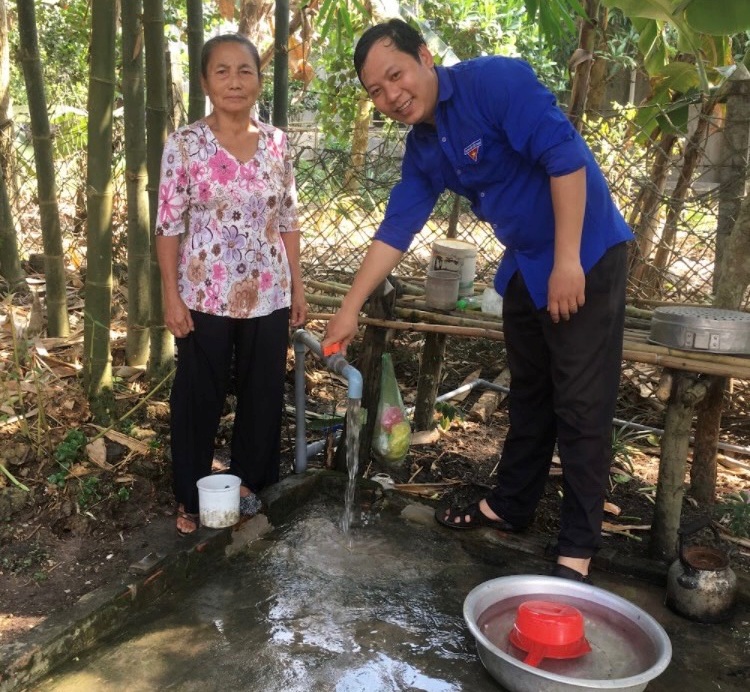To ensure safe and clean water supplied to the public
Clean water and environmental sanitation are always considered important factors of social life. Recently, the province has implemented many solutions to ensure safe clean water supply for the people, contributing effectively to coping with climate change.

Water resources monitoring and supervision activities are always being expanded to ensure the quality of water sources
Safe and efficient utilization.
Currently, in the province, the water quality in some areas can be controlled, but in some areas, especially remote areas, it cannot be fully controlled. Therefore, protecting water sources, conserving and using water resources efficiently, and preserving a clean, green, and beautiful environment to be very important tasks.
Mr. Le Van Tan, Head of the Department of Water Resources and Minerals, Department of Natural Resources and Environment, stated: “Groundwater can only be referred to as sanitary water, centralized water supply is called clean water. Clean water is used for daily activities, groundwater needs to be treated before use. People and businesses should use centralized water sources, in areas without clean water systems, groundwater must be treated to ensure health safety.”
According to Mr. Nguyen Khanh Truong, Director of the Center for Clean Water and Rural Environmental Sanitation of the province, the center is currently managing, operating and exploiting 31 centralized clean water supply projects in rural areas of 31 communes and towns in 5 districts and cities of the province. The centralized clean water supply projects are operating stably, ensuring the supply of water for rural people to use. Due to climate change, prolonged heat waves, some areas have weak water sources but still ensure people's use.
Mr. Chu Van Giap, Head of the centralized water supply station in Minh Tan commune, Dau Tieng district, stated: "Minh Tan has a very abundant water source, always ensuring no interruptions even during the hot season. Staff regularly promote the rational and efficient use of water to the residents, avoiding wastage of water resources.” Head of Phuoc Hoa commune's water supply station, Mr. Anh Le Xuan Thang, stated that this year's prolonged heatwave has resulted in insufficient water supply to certain areas in highland regions. The station advises citizens to construct water tanks to ensure an adequate water supply.
Water resource protection
Recognizing that water resources are not infinite, very susceptible to pollution but difficult to restore. Therefore, the protection of water resources is always given high priority. Binh Duong is one of the first localities in the country to implement the investigation, statistics, and filling of damaged wells, not in use to protect groundwater and issue regulations on restricted areas, restricted zones, and registration zones for groundwater exploitation.

Officials from the Water Supply Station in Phuoc Hoa commune are assisting with the installation of water meters and providing guidance to residents on using clean water
According to Ms. Nguyen Ngoc Thuy, Deputy Director of the Department of Natural Resources and Environment, the province's water resources are currently under threat due to the rapid industrialization and urbanization. In addition, the increasing population, severe impacts of climate change, and growing water demand for production are leading to a scarcity of domestic water sources.
Over the past period, the Department of Natural Resources and Environment has organized activities to promote the World Water Day in the province to enhance community awareness in protecting and conserving water resources. At the same time, the management of water resources has been continuously strengthened and improved over time towards the goal of protecting water sources for sustainable development. Up to now, the entire province has 55 monitoring projects to timely assess groundwater movements.
In addition, the province has developed the National Water Resources Planning for the 2016-2025 period, with a vision towards 2035, issuing a list of surface water sources requiring protection corridors. Conduct surveys to identify areas at risk of groundwater pollution and propose solutions for treatment and protection. In addition, the province has developed the National Water Resources Planning for the 2016-2025 period, with a vision towards 2035, issuing a list of surface water sources requiring protection corridors. Conduct surveys to identify areas at risk of groundwater pollution and propose solutions for treatment and protection.
The United Nations will launch World Water Day 2024 with the theme "Water for Peace". The theme of World Water Day this year calls on governments of all nations to take urgent action to address the global water crisis, with a core focus on carrying out supportive activities to achieve Sustainable Development Goal 6: Water and Sanitation for All by 2030. Binh Duong has also developed an action plan to ensure full access to safe water, sustainable water resource management, and sanitation systems for all.
Reported by Tien Hanh – Translated by Vi Bao

